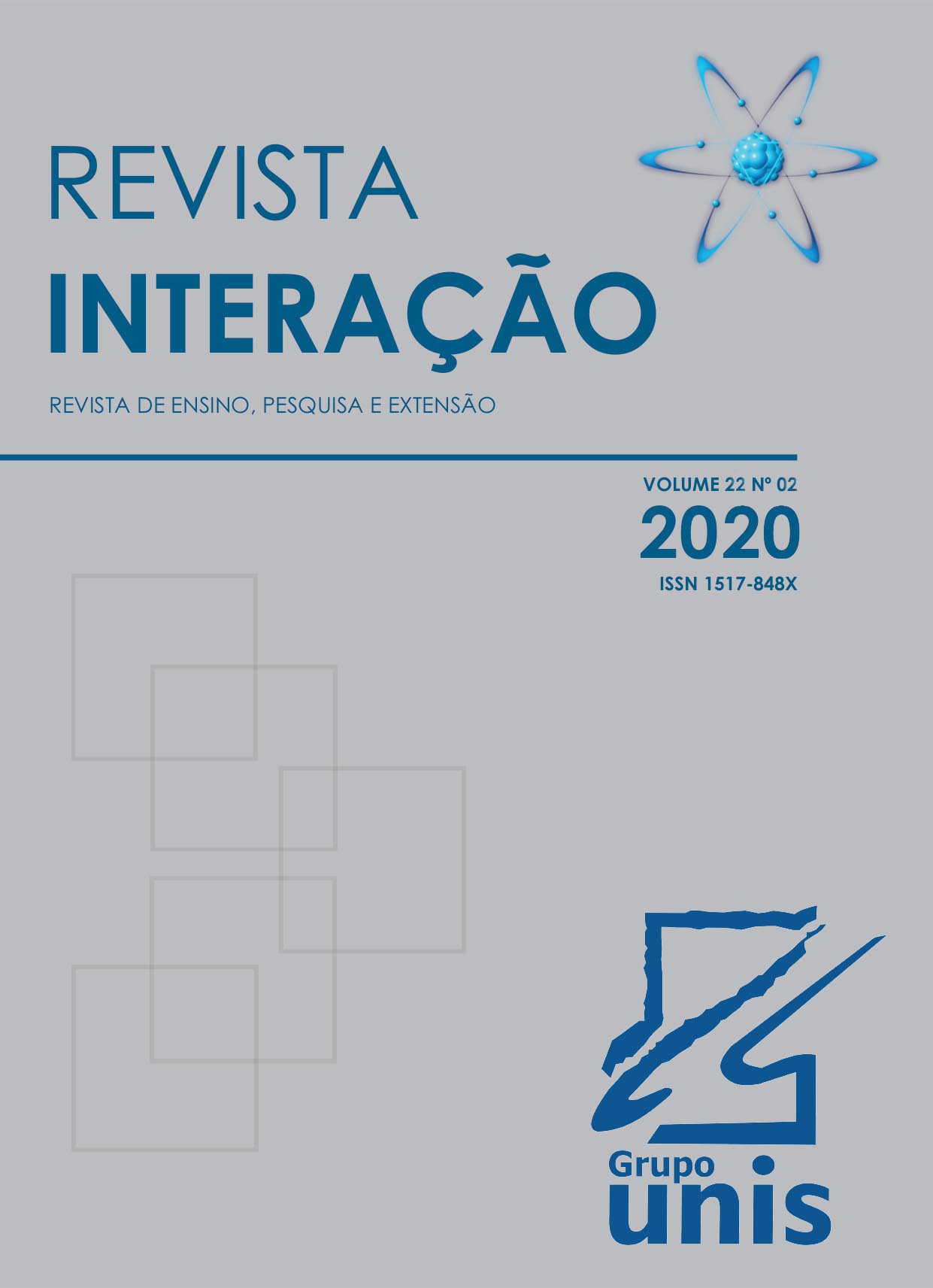Institucionalização de crianças e adolescentes e a adoção tardia em União da Vitória-PR
DOI:
https://doi.org/10.33836/interacao.v22i2.366Palavras-chave:
Adoção Tardia, Criança e Adolescente, Rede de ProteçãoResumo
O objetivo do estudo foi analisar a adoção tardia e os serviços prestados pela rede de proteção social integral da criança e do adolescente institucionalizada em União da Vitória-PR, após a Lei nº 8.069/1990. Foi realizada pesquisa bibliográfica e de campo sobre a composição da rede socioassistencial que atua tanto na proteção como na adoção tardia. Aplicou-se entrevista para seis agentes da rede, sendo: 02 no Centro de Referência de Assistência Social (CRAS); 02 no Centro de Referência Especializado de Assistência Social (CREAS); 01 na Vara da Infância e Juventude e 01 no Conselho Tutelar. A coleta de dados ocorreu nas instituições em 2018. Percebeu-se que a proteção social integral da criança e do adolescente, que modificou a institucionalização naquele município, estava articulada quanto a adoção tardia, mas enfrentava desafios. Atores envolvidos não compreendiam a complexidade desse processo e impediam a operacionalidade dos trâmites para adoção. A adoção tardia é um desafio na garantia do direito à convivência familiar. Uma criança ou adolescente que passou por negligências e foi institucionalizada em muitos casos resta a opção da adoção, o que também se torna um novo desafio: o de ser aceito em especial se tiver mais de dois anos de idade. Concluiu-se que esta é uma questão a ser enfatizada tanto no viés das atribuições institucionais, quanto dos profissionais que atuam na área, sob o risco de consolidar mitos e contradições que culturalmente persistem e afetam sobremaneira as mudanças nas bases e trâmites da adoção tardia no Brasil.
Referências
ANDREI, Elena. Adoção: mitos e preconceitos. In: FREIRE, Fernando (Org). Abandono e Adoção: contribuições para uma cultura da adoção. Curitiba: Terra dos Homens, 2001. p. 41-50.
AVANSINI, Carolina. Morosidade reduz chances de adoção. Folha de Londrina. Londrina, mar. 2017.
BIROLI, Flávia. Família: Novos Conceitos. São Paulo: Editora Fundação Perseu Abramo, 2014.
BRASIL, Constituição (1998). Constituição da República Federativa do Brasil. Brasília: Senado Federal, 1988.
BRASIL. Estatuto da Criança e do Adolescente. Lei 8.069/90, de 13 de julho de 1990. Brasília: Senado Federal, 1990.
BRASIL. Orientações Técnicas: serviços de acolhimento para crianças e adolescentes. Brasília, Ministério do Desenvolvimento social, 2009.
BRASIL. Tipificação Nacional de Serviços Socioassistenciais: texto da Resolução 109 de 11 de novembro de 2009. Brasília- DF: Impressão Nacional, 2009.
CAMARGO, Mário Lázaro. Adoção tardia: Mitos, medos e expectativas. São Paulo: Edusc, 2006.
CONSELHO NACIONAL DE JUSTIÇA (CNJ). Passo a Passo da Adoção.
DIAS, Maria Berenice. Manual de direito das famílias. 10 ed. São Paulo: Revista dos Tribunais, 2015.
EISENSTEIN, Evelyn. Adolescência: definições, conceitos e critérios. Rev. Adolescência e Saúde. Rio de Janeiro, v. 2, n. 2, 2005.
FREIRE, Débora Rodriguez; MARQUES, Valquiria; SILVA, Yuri Emmanuelle. Adoção Tardia e o Trabalho do Assistente Social. lll Simpósio Mineiro de Assistentes Sociais. Belo Horizonte, 07-09 jun. 2013.
NOGUEIRA NETO, Wanderlino. Por um Sistema de Promoção e Proteção do Direitos Humanos de Crianças e Adolescentes. Revista Serviço Social e Sociedade. São Paulo: Cortez, v.26, n.83, p.06-25, 2005.
SILVA, Maria Liduina de Oliveira e. O Estatuto da Criança e do Adolescente e o Código de Menores: descontinuidades e continuidades. Revista Serviço Social e Sociedade. São Paulo: Cortez, v.26, n.83, p.30-48, 2005.
SIMON, Claudio Hutz. Violência e risco na infância e adolescência: Pesquisa e intervenção. São Paulo: Casa do psicólogo, 2005.
VARGAS, Marlizete Maldonado. Adoção Tardia: da família sonhada à família possível. São Paulo: Casa do Psicólogo, 1998.
VERONESE, Josiane Rose Petry; OLIVEIRA, Luciene Cássia. Adoção e Relações Familiares. Florianópolis: Katálysis, v.0, n.02, p.50-56, 1998.
WASKIEWIC, Maikon. Mapa de localização do município de União da Vitória (PR). Canoinhas, 2020.



